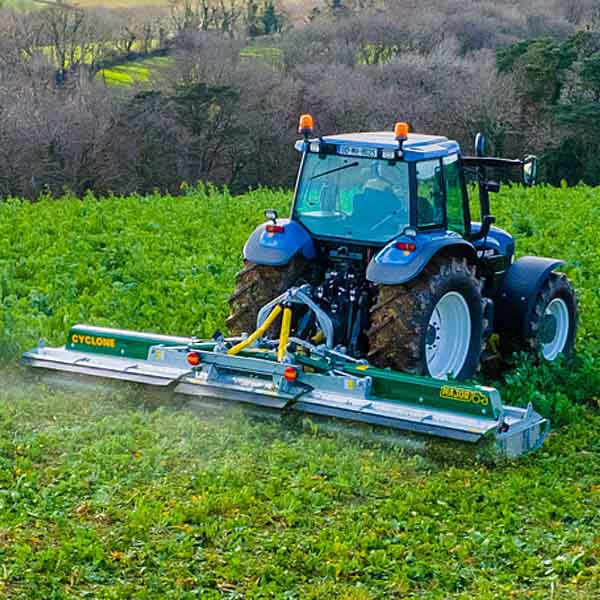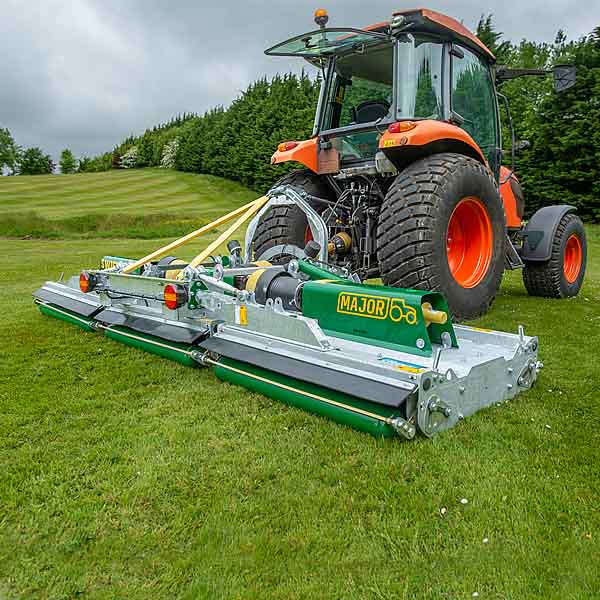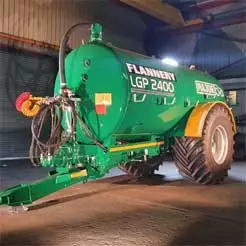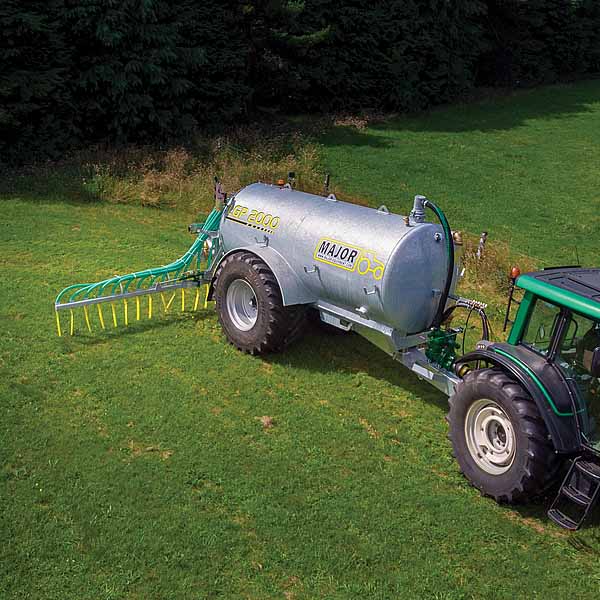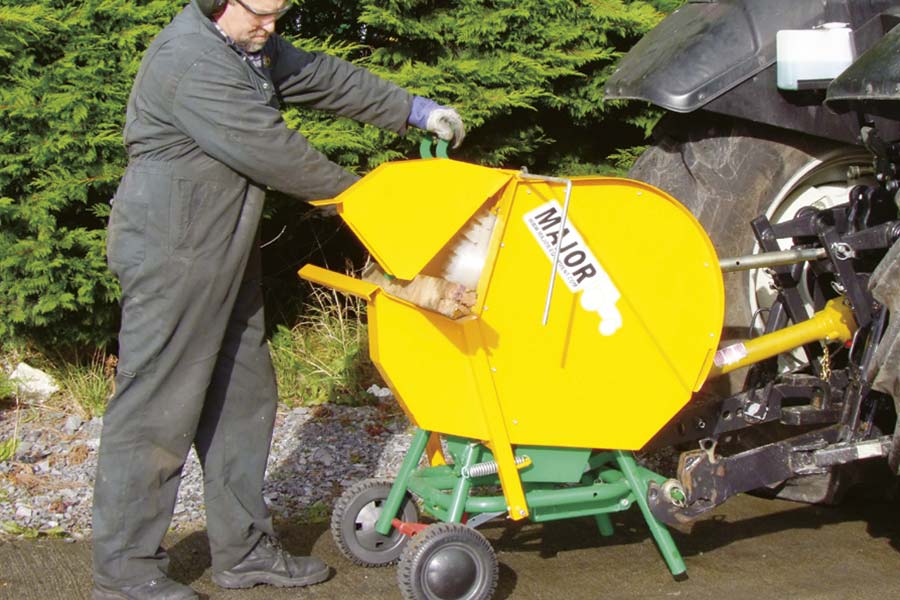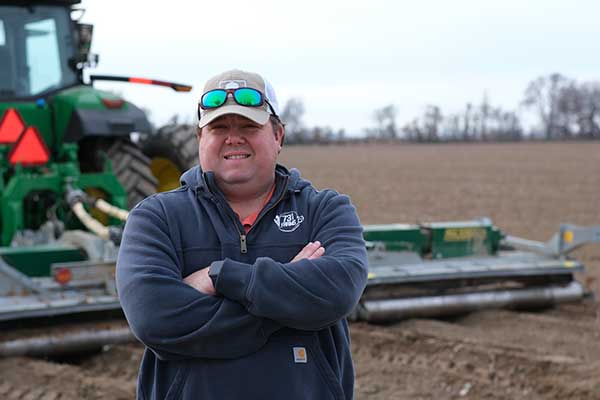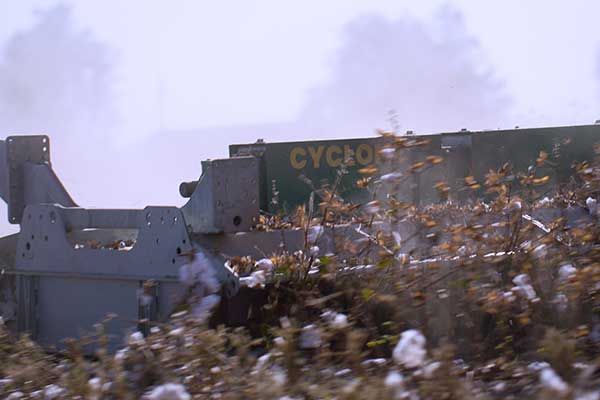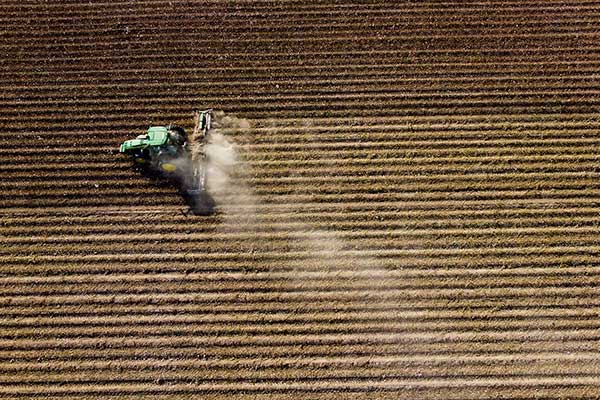30ft Major Cyclone creates efficiencies for Missouri cotton farmer Jason Mayer and improves his bottom line
When Jason Mayer was still in high school, he was farming with his uncle Kenneth, who had taken over the family farm. The economics of the small farm would not sustain them both, so Jason enrolled at Mississippi State University.
After graduating with degrees in Business and Agricultural Engineering, he returned to Stoddard County, rented some row crop ground and began building up his own farming operation.
Always on the Lookout for Efficiency Gains
Today he farms with Jim Stuever, incorporated as 731 Farms. Their mostly irrigated acreage is split between cotton, corn, soybeans and a little wheat.
“Jim and I strive for efficiency in everything we do,” said Mayer. “All of our land is laser graded and squared off. We can push water across it really well.”
By late April each year, cotton seeds are being dropped on 38-inch rows, typically hipped up the previous fall if weather allows. Corn is usually planted a little earlier and if Mayer has time between planting corn and cotton, he will make time to get his soybean acreage planted.
“We’re blowing and going with the planters April through May,” said Mayer. “Then we’ll start laying approximately 50 miles of poly-pipe for irrigation.”
Using Pipe Planner to gauge the size of poly-pipe needed, the size of holes that will be punched to regulate the gallons per-minute flow across his fields, Mayer has reduced his irrigation energy costs and uses less water over the entire irrigation season and has reduced his overall irrigation labor costs.
“Pipe Planner helps us distribute water more evenly and reduces excess runoff,” adds Mayer.
Once planting is complete and all his poly-pipe has been laid, time is split most of the summer between side-dressing with fertilizer where it’s needed and controlling pests in his cotton to protect yield potential.
By the end of September Mayer is concentrating on defoliating his cotton acres. His two on-board module harvester John Deere CP770s will start rolling after all the cotton leaves drop. This is another area of his operation Mayer has seen significant efficiency gains.
“On-board module harvesters, or baler pickers, have changed the overall dynamics of cotton harvesting for so many cotton producers,” said Mayer. “We eliminated the need for two module builders and saw immediate savings from lower fuel usage.”
Mayer used to hate harvesting cotton on windy days because the wind would catch the smaller tufts of lint and blow them to the ground while his pickers were transferring cotton into the module builders. His crew would have to waste time picking cotton up off the ground.
“Now when we’re harvesting, the windier it is, the more I like it because helps reduce the dust and lint accumulation on the pickers,” said Mayer.
Folding Crop Shredder Outperforms Flail Machine
Mayer purchased a new piece of equipment in 2021, a MJ30-920 Cyclone Mower. He had been running a Balzer 25-foot flail machine but was intrigued when he saw a neighbor using the Cyclone.
“The first thing I liked when I saw it was the way it folded up for easy transport down two-lane roads between my fields,” said Mayer. “Plus, the Cyclone’s 30-foot width covers 10 rows, two more than the Balzer.”
In 2022, Mayer used the Cyclone to cut about 2,000 acres of cotton stalks. He can pull it a couple miles per-hour faster than the Balzer. Also, the Cyclone’s blades are more durable and hold up better than the Balzer’s blades.
As climate change continues to deliver drastic weather swings, the Midsouth may be near drought during one part of the farming season and battling high water in another. While Mayer can’t tailor weather, he understands the importance of getting back into a field when he needs to after mid-season rains.
“I’ve seen a small efficiency gain from the Cyclone because it spreads out the residue really well,” said Mayer. “I don’t need wind rows of residue on the ground after I get through cutting stalks and this machine does a great job of spreading out material that holds water and keep me from getting back into the field more quickly.”
When maintenance is required, Mayer works with Cecil Whitiker and Michael Lambert with Greenway Equipment in Dexter, Missouri.
“I’ve got a great relationship with Cecil, Michael as well as the folks at Major Equipment,” said Mayer. “Despite supply chain issues across the country, any downtime I’ve had waiting for parts or service has been negligible, and you can’t put a price on that because I hate down time.”
These are some of the ways Mayer and Stuever have become more efficient in their farming operation.

